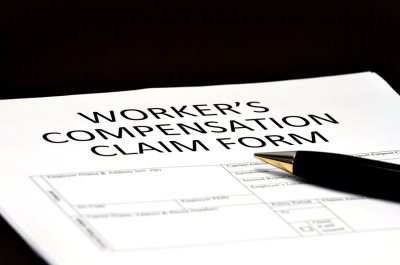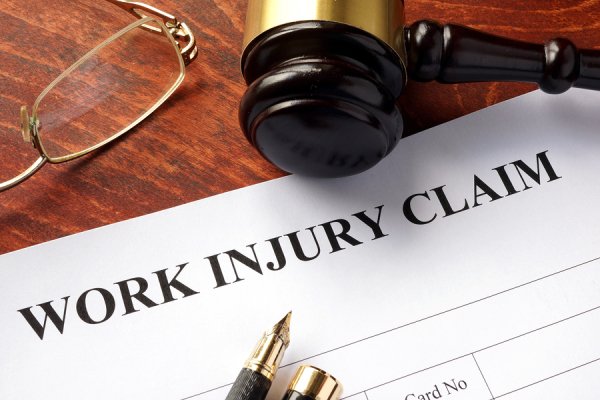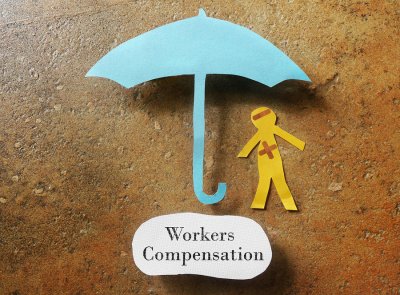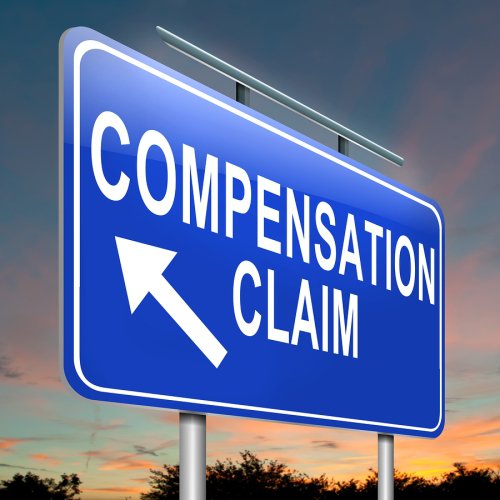-
What Is Occupational Asthma?
Asthma is a chronic, inflammatory condition that affects the airways and causes trouble breathing. Periodically, the inflammation can become significantly worse in a flare-up called an asthma attack. There are different types of asthma, including occupational asthma, which is a disease triggered by a workplace. If your doctor informs you that you have asthma and you suspect your job may be to blame, talk to a workers’ comp attorney in Baltimore right away. Under workers’ comp law , your medical treatment may be covered and you may be entitled to receive additional benefits.
Your workers’ comp lawyer may ask to see your medical records, which might indicate whether you have work-aggravated asthma or true occupational asthma. Work-aggravated asthma refers to pre-existing asthma that is worsened by conditions in the workplace. True occupational asthma originates directly from the workplace. Jobs that require exposure to chemical irritants or sawdust, for example, can irritate the airways. A workers’ comp lawyer can make sure your employer follows all the necessary steps to protect employees, such as implementing a health surveillance program and establishing effective irritant control measures.

-
Is COVID-19 a compensable “occupational disease” under the law of Workers’ Compensation in Maryland?
The current COVID-19 pandemic is obviously an unprecedented public health crisis in American society. Numerous industries and organizations, including the legal community, are facing uncharted questions and challenges.
I’d like to examine one such question that is relevant to my particular area of legal practice, Workers’ Compensation in Maryland: whether someone who is deemed an “essential employee” and required to go into work during the pandemic, and who then contracts COVID-19, can file for workers’ compensation benefits?
Maryland’s workers’ compensation laws are in place to ensure that when someone is injured or becomes ill on the job, the worker and/or their families receive certain benefits in order to maintain financial and medical well-being. Those benefits include temporary total disability (TTD), which is a payment of two thirds of the worker’s average weekly wage for the time the worker is completely unable to work due to occupational accident or illness. Workers are also entitled to coverage of all medical expenses directly related to the occupational injury/illness by the employer’s workers’ compensation insurance. Additionally, permanent partial disability (PPD) benefits are sometimes available to compensate workers who suffer some degree of lasting negative consequences as a result of occupational illness or injury. There are other benefits as well, but these are some of the main ones.
MD Code Labor and Employment Section 5-101 defines an occupational disease as one that is “contracted by a covered employee: (1) as the result of and in the course of employment; and (2) that causes the covered employee to become temporarily or permanently, partially or totally incapacitated.”
However, the Employer/Insurer’s liability is limited by Md. Code Labor and Employment Section 9-502(d) which states compensation must only be paid if:
(1) the occupational disease that caused the death or disability:
(i) is due to the nature of an employment in which hazards of the occupational disease exist and the covered employee was employed before the date of disablement; or
(ii) has manifestations that are consistent with those known to result from exposure to a biological, chemical, or physical agent that is attributable to the type of employment in which the covered employee was employed before the date of disablement; and(2) on the weight of the evidence, it reasonably may be concluded that the occupational disease was incurred as a result of the employment of the covered employee.
In 2019, Maryland’s highest court, the Court of Appeals, had a chance to examine the concept of “occupational disease” in the case of Baltimore County v. Quinlan, 466 Md. 1. That case involved a firefighter/paramedic who had developed degenerative tears in his meniscus. The case highlighted that usually an occupational disease is one that develops gradually over time as a result of conditions in the workplace. Some examples might be asbestosis or carpal tunnel syndrome. One of the questions in Quinlan was whether the claimant’s degenerative knee condition fell into the category of a compensable occupational disease. Ultimately, the Court determined that Mr. Quinlan’s knee condition was an occupational disease for which he was entitled to workers’ compensation benefits.
The Court highlighted a two-part test (with the second part divided into two sub-parts) for determining the compensability of occupational diseases. The first part involves an examination of the professional tasks of the specific employee in question. The second prong of the test involves an examination of whether: “(a) the ‘nature’ of the employment includes the hazards of the ailment the employee suffers from to a greater degree than that present in general employment; and (b) whether the employee’s job functions expose the employee to those hazards.’” The Court examined prior Maryland cases which demonstrate that courts are to look at the specific “risk factors” to which a given worker is exposed and which may give rise to an occupational disease.
The Court took into account various factors in determining that Mr. Quinlan’s knee condition was a compensable occupational disease. For example, the Court looked with favor on expert testimony in the record that firefighters/paramedics have a higher statistical likelihood of developing meniscal tears. The Court also highlighted that occupational diseases usually require some level of “repetitive” behavior over time which gives the disease a chance to develop on the job. Furthermore, the occupational disease has to arise out of conditions which are normal and natural to the employee’s job duties.
What does this mean in regards to COVID-19 and essential workers? I believe that, in light of the statute and case law discussed above, many essential workers in Maryland who are still showing up to work during the pandemic, and who contract COVID-19, will have strong arguments that their disease is a compensable “occupational disease.” Workers will have to describe for a Commissioner their specific job duties, and how doing those duties in the midst of a highly infectious pandemic could naturally give rise to the contraction of COVID-19. Workers will want to be as specific as possible in describing their job duties during the pandemic, and in showing why it is more likely than not that they contracted the disease at work as opposed to elsewhere. In line with Quinlan, if a worker can find statistical data showing that their profession has a higher risk of infection than others, this would be helpful.
Obviously, it seems that hospital workers and other healthcare workers who are exposed to COVID-19 patients have the strongest argument for compensability. However, I think that the statute and Quinlan provide an avenue for compensability for other essential workers as well. For example, grocery store checkout clerks. Their specific job duties entail standing face to face with hundreds of customers for several hours each day, and directly exchanging food and money between those individuals. This repetitive job duty certainly seems to give rise to the hazard of contracting COVID-19, especially if the grocery store worker can establish that during their non-working hours they remained isolated and at home. Nursing home employees and correctional officers also come to mind as classes of employees who could have strong claims for compensability when it comes to COVID-19.
Ultimately, the question of the compensability of COVID-19 as a compensable “occupational disease” in Maryland is a novel one, and does not fit neatly into the previously recognized classes of occupational disease. However, the statute and case law certainly at least allow for the possibility that COVID-19 is a compensable disease.
If you or someone you know contracted COVID-19 during the pandemic and you believe the disease is work-related, please contact attorneys Jack Schmerling, Esq. and Ilan Roth, Esq. at 410 787 0022.
-
The Workers’ Compensation Claims Process Step-by-Step
If you are injured on the job, the steps you take after the injury may determine your ability to claim compensation. It’s important to closely follow the correct procedures are you file a claim, including finding a workers’ comp lawyer in Baltimore to help you with your case. Follow these steps to protect your rights and preserve your ability to collect compensation for your injury.

Report Your Injury
It is imperative to report any injury that occurs at work to your supervisor right away, including acute injuries, occupational diseases, and cumulative-trauma injuries. Be very clear with your supervisor that your injury is specifically related to work, and ensure that he or she creates an official accident report. If your supervisor refuses to prepare a report or doesn’t include all of the relevant details in the report, write to him or her an official letter documenting the injury. If you can get your supervisor to sign something acknowledging receipt of the letter, it can be helpful to your workers’ compensation lawyer, but if not, simply keep a copy of the letter and a note of when you delivered it. If a report was prepared, get a copy.
See a Doctor
A doctor should evaluate you as soon as possible. Your company may have a preferred physician, but you are entitled to choose your own doctor under Maryland law. Be very clear in explaining your injury to your doctor, specifically stating that it was a work injury. Follow your medical instructions precisely, and request notes if your doctor recommends that you don’t work or avoid certain activities. All bills should be sent to your employer or your employer’s insurance company. Your workers’ compensation attorney can help you understand where your bills should go.
Consult Your Lawyer
Stay in contact with your workers’ compensation attorney throughout the claims process. He or she will walk you through all of the necessary steps to achieving a successful claim. Don’t discuss your case with anyone at work, and talk to your lawyer if you are contacted by an insurance company.
-
Understanding Phantom Pain
If a serious car accident injury leads to an amputation, then you may experience phantom pain. Your car accident lawyer in Baltimore will consider your phantom pain alongside the other circumstances of your accident when seeking damages on your behalf. Here is a closer look at what you need to know about phantom pain.
After an amputation, phantom pain is pain that feels like it is coming from the limb that has been amputated. It is not something that occurs in your head but rather the result of stimuli from your spinal cord and brain. The symptoms can be severe and difficult to manage, and for some people, they can last indefinitely. Your car accident attorney will factor the severity of your phantom pain and your doctor’s prognosis to decide what your future medical costs may be, as well what kind of pain and suffering damages to pursue from the negligent party.

-
Worker’s Compensation in the Workplace and Why You Need an Experienced Attorney if Something Happens

While it’s the last thing anyone hopes will happen, sometimes accidents happen in the workplace. If you suffer an injury, it can be difficult to know exactly how to deal with the situation at hand. As an employee, your employer is legally mandated to have a worker’s compensation policy taken out, so in the event of an accident, proper procedure must be followed. Understandably, your employer will likely want to make sure that you’re taken care of to avoid further issues, but navigating the legal field of worker’s compensation can be especially tricky. This is why it’s important to have an attorney who’s worked in the field by your side to make sure you receive all that you’re supposed to get. Not sure how the whole procedure works or why you should have an experienced attorney? Jack J. Schmerling, Attorney at Law will let you know all the details!
The Importance of Having an Experienced Attorney for Worker’s Compensation
• The Proper Evidence is Collected. Not only do you need an experienced attorney, it’s also important to make sure you get one early in the process. If you wait for weeks or months to pursue the claim, evidence vital to your case could easily be lost. Paperwork related to your claim can vanish, and it will become increasingly difficult to fight for your rights and proper compensation.
• Your Medical Treatment Won’t be Controlled. There’s a good chance that your employer will try to control your treatment and have you visit a practitioner on their timeline. This could result in you having to pay to receive treatment, or simply not receiving proper care at all. An experienced attorney will help you to realize what medical care you’re entitled to all without affecting or compromising your claim.
• Your Claim Won’t be Prematurely Closed. It’s important to realize that upon signing settlement claims, it becomes extremely difficult to reopen your worker’s compensation claims. An attorney is well-versed in the field, and will let you know whether or not what you’re being offered is fair, or if there’s more that you deserve and are entitled to. Since the Bureau of Worker’s Compensation and your employer prefer to pay as little as possible when it comes to settling your claim, having someone with experience will ensure you receive your full amount of compensation.
• Unique Situations Can be Resolved. Sometimes you may find yourself in a situation that’s not so simple. For example, if you receive Social Security Disability Insurance benefits, they could be reduced once you receive worker’s compensation benefits. An attorney will work with you through the entire process to minimize the amount that will be reduced. Other situations could be if you have a worker’s compensation hearing or if your ability to work has been affected in the long run.
Getting the Restitution You Deserve
To make sure that your rights are fully upheld, don’t hesitate to get in touch with Jack J. Schmerling, Attorney at Law. We’ll make sure you’re fully compensated and assist you through the entire claims process, so call for a free consultation in Glenn Burnie today at (410) 988-4956!
-
Worker’s Compensation: Why it is Important and How it works?

There’s a good chance that your worker’s compensation policy is the policy you think the least about, but that doesn’t mean it’s not important. Because your employer has the legal responsibility to make sure that you, as their employee, are safe in their workplace, worker’s compensation works in your favor to make sure you are compensated and receive the appropriate medical care, rehabilitation, and any lost wages because of the injury. While nobody wants this to happen, accidents can happen, which is why you need to be up to speed on the basics of worker’s compensation and how it functions. Not sure where to begin? Jack J. Schmerling is here to bring you in on the know so you can be better prepared if the situation ever arises.
The Importance of Understanding Worker’s Compensation
First and foremost, it’s the law: many states require that you have worker’s compensation. This also applies even if you have just one employee; to comply with the law, worker’s compensation must be carried. However, carrying worker’s compensation shouldn’t be seen as a burden: it’s what provides your coverage if you’re eligible. In the case of an injury, you will be referred to an approved healthcare, who will fill out all necessary paperwork in order to file the claim. Once you receive compensation, you can have prescriptions filled at an approved pharmacy. It’s important that the medical report is sent to all relevant parties, such as the employer, insurer, etc. The case will be investigated and documented, and if you are eligible for benefits, you’ll receive payments.When it comes to premiums, the National Council on Compensation Insurance, as well as the state’s Compensation Insurance Rating Board determine what your premiums will be. Your payroll and other costs will be taken into consideration, as well as other factors such as your company’s claims history.
Throughout the entire procedure, it is vital that you, as an employee, have a full understanding of your benefits and what your employer’s responsibilities are, so that you receive the maximum benefits and compensation you deserve. For example, if you suffer an injury, your claim is filed with the insurance company, which will cover your medical/disability benefits. Barring a few limited categories, if your employer doesn’t have worker’s compensation insurance, they’re subject to fines, criminal prosecution, and civil liability. Fully understanding the duties required and benefits you can receive is vital in protecting you to the full extent of the law.
Making Sure You’re Properly Compensated
Do you feel you haven’t received proper compensation from your employer? Unsure how to proceed with worker’s compensation? Jack J. Schmerling, Attorney at Law has been defending the Greater Baltimore Metro Area, offering full and transparent assistance for all your worker’s compensation rights. For a free consultation in Glen Burnie, call us today at (410) 988-4956
-
I Was Injured During My Commute. Can I Get Workers’ Comp?
Workers’ comp law in Baltimore allows injured employees access to financial benefits if they are hurt while on the job, accrue medical expenses, and lose wages. It does have some limitations, however. Employees are only covered under workers’ comp if their injury or illness was directly related to the workplace or duties of the job. This means that most employees who are injured during their daily commute to work aren’t eligible for workers’ compensation. There are exceptions to this, however, so it’s in your best interests to consult an attorney.

Going and Coming Rule
Maryland’s “going and coming” rule limits workers’ comp eligibility. It states that workers cannot qualify for benefits if they were injured while going to or coming from work. This rule presumes that you are responsible for ensuring your own safety while traveling. However, there are a few exceptions.
Premises Exception
One notable example of the premises exception is a Maryland woman who won her claim for benefits after she was injured in her employer’s parking lot, while walking to the employee entrance. The court determined that, because the employee was on employer property, she was covered, even though she hadn’t started work yet.
Proximity Exception
Even if you were injured off-site, next to your employer’s property, you may still be eligible for benefits under the proximity exception. Two elements must be present to qualify:
- The off-site area contains a special hazard (such as icy sidewalks).
- The route from the off-site location to the employer’s property is closely associated with the employer.
The second requirement can be tricky to meet. It’s fulfilled when an employer directs employees to use that off-site location, or when the employer knows employees use it, and acquiesce to it. For example, Gerald is a fictitious worker who leaves his job and walks toward the employer-provided parking lot. To get there, he takes a shortcut along the railroad tracks, where he is struck by a train. The employer is aware that workers take this shortcut. Gerald would be covered, since there is clearly a hazard, and the shortcut is strongly associated with the employer’s property.
Employer-Provided Transportation Exception
Some employers contract with transportation companies to provide free or fee-based transportation to their workers. If you were injured on a shuttle bus provided by your employer, you could be eligible for benefits.
-
How the SSA Reviews Medical Evidence
The Social Security Administration (SSA) is legally required to have medical evidence of an eligible impairment before granting benefits to a claimant. Proving the existence of a qualifying impairment can be a long and complex process. Talk to an attorney in Baltimore who handles disability claims to avoid costly mistakes in the application process. For a thorough introduction to medical evidence, watch this featured video.
These SSA representatives explain what claimants can expect from the evaluation of medical evidence for physical and mental health impairments. You’ll learn how the state agency reviews information provided by the field office. This information includes medical records, lab test results, doctor’s notes, and treatments. If the state agency doesn’t have enough evidence to make a final determination, the claimant may be required to have another medical exam. The doctor who performs the exam must then submit a medical source statement, which is a professional opinion about the claimant’s functional capacity.
-
What Is the Positional-Risk Test for Workers’ Comp?
States establish their own workers’ comp laws . Workers in Baltimore, Maryland can file a workers’ compensation claim if they meet the criteria of the positional-risk test. This test determines whether an injury was directly caused by the job. In short, it’s a “but for” test, meaning that an injury qualifies if the worker would not have received the injury, but for the obligations and conditions of employment. This means that a person could receive workers’ comp benefits even if the injury was sustained during incidental activities, such as a lunch break.
In the past, Maryland courts have used the positional-risk test to define generous boundaries for workers’ compensation coverage. One notable case involved the death of a worker who had borrowed his employer’s welding equipment to make some non-work-related auto repairs. The court determined that the family was entitled to benefits because, had it not been for the worker’s employment, he wouldn’t have had access to the malfunctioning equipment that caused his death by electrocution.

-
Horseplay in the Workplace: A Look at Workers’ Comp
Employees in Baltimore can rely on workers’ comp law to protect them in the event of a job-related injury or illness. However, there are a few gray areas, such as injuries that result from horseplay in the workplace. Because of the risk that your claim would be denied, you should contact a workers’ comp lawyer as soon as possible after becoming injured in a horseplay-related incident.
Watch this video to hear more about applicable workers’ comp issues. You’ll learn that multiple factors may be considered before denying or approving the claim, such as the nature of the injuries, the role of the injured worker in the incident, and the history and culture of the workplace. If your workers’ comp claim is denied based on willful misconduct, your attorney may file an appeal. Another alternative is filing a personal injury lawsuit against the other employees.
RECENT POSTS
categories
- Uncategorized
- Worker's Compensation
- Attorney Fees
- Auto Accident Injury Whiplash
- Attorney Review
- Personal Injury
- Social Security Disability
- DUI
- Workplace Injuries
- Auto Accident
- Workers Compensation Claims
- Permanent Disability
- Infographic
- Drunk Driving
- Wrongful Death
- Works in Maryland
- Uninsured Motorists
- Motorcycle Crashes
